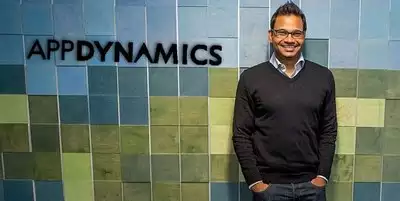When Jyoti Bansal faced “the toughest decision” of his professional journey—selling his software company AppDynamics for billions—his employees were at the forefront of his mind. In 2017, just days before AppDynamics was slated to go public, tech behemoth Cisco intervened with an enticing offer of $3.7 billion. This pivotal move made Bansal, the visionary founder of AppDynamics, instrumental in transforming 400 of his employees into millionaires. At 46, the IIT Delhi graduate holds the title of lead inventor on over 20 US patents. Following the sale of AppDynamics, Bansal launched several new ventures, including the software delivery company Harness, the venture capital firm Unusual Ventures, and the API security startup Traceable AI.
For Bansal, the sale was not merely a financial triumph; it was a pathway to ensure the prosperity of his team. Approximately 400 employees became millionaires from the deal, with many individuals earning upwards of $5 million. “These are life-changing amounts,” he remarked in an interview with CNBC. In what he describes as “the hardest decision” of his career, Bansal ultimately chose to sell AppDynamics to Cisco, just days before the company’s IPO, for $3.7 billion. While both outcomes would have secured significant wealth for him, his primary focus remained on the well-being of his employees.
Bansal meticulously weighed numerous factors before accepting Cisco’s proposition, including how well AppDynamics’ solutions aligned with Cisco’s product suite and the potential impact of the acquisition on his 1,200 employees, both financially and culturally. He also carefully assessed Cisco’s $3.7 billion offer against his own IPO forecasts. Bansal estimated that achieving a similar valuation in the public market would have required three to four years of robust performance. “By selling, we reduced that risk for all the employees. That’s a significant impact,” he noted.
Though Bansal initially wrestled with his decision, contemplating whether he could have continued to scale the company, he now stands firm in his choice. The sale freed him to explore other business ventures. Presently, he serves as the CEO and co-founder of two additional software startups: Traceable and Harness, the latter of which was valued at $3.7 billion in 2022.
For Bansal, the sale’s significance transcended his personal financial gain. “As the founder, the money was life-changing for me, but the biggest factor was our employees,” he emphasized.
It’s uncommon for startup founders to prioritize employee welfare during a sale. Jay Chaudhry, the founder of Zscaler, faced a similar situation in 1998 when his company was acquired by VeriSign for $70 million. He realized the profound effect on his employees only in hindsight. When VeriSign’s stock skyrocketed two years post-acquisition, 70 out of 80 employees became millionaires. “People were going crazy,” Chaudhry recalled. “They had never imagined so much money. Some were buying new houses, others new cars. One employee even took six months off to travel the country.”


Recent Comments